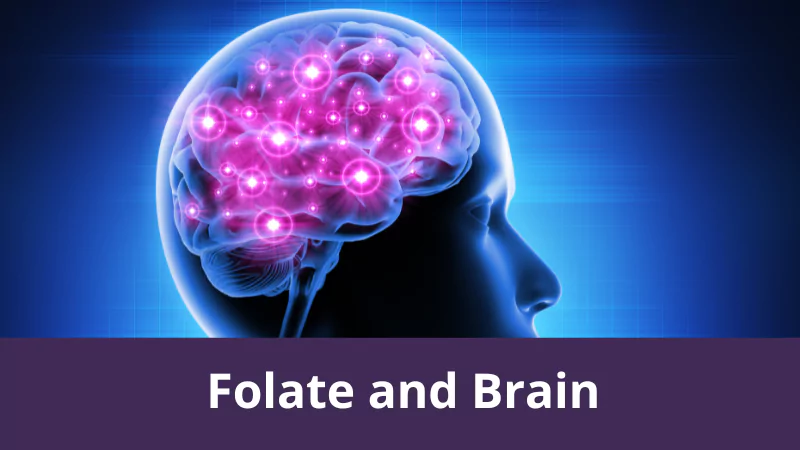Folate And Addiction Recovery: Supporting Brain Health

Folate and Addiction Recovery: Supporting Brain Health
Introduction
Addiction is a complex disease that affects millions of people worldwide. It is characterized by compulsive drug-seeking and use, despite negative consequences. Addiction can lead to a variety of health problems, including brain damage.
Folate is a B vitamin that is essential for brain health. It is involved in a number of important processes, including DNA synthesis, cell growth, and neurotransmitter production. Folate deficiency has been linked to a number of mental health problems, including depression, anxiety, and schizophrenia.
Recent research has shown that folate may also play a role in addiction recovery. Folate supplementation has been shown to improve cognitive function and reduce cravings in people who are recovering from addiction.
Folate and Brain Health
Folate is essential for the development and function of the brain. It is involved in a number of important processes, including:
- DNA synthesis: Folate is required for the synthesis of DNA, the genetic material that is found in all cells.
- Cell growth: Folate is also required for cell growth and division.
- Neurotransmitter production: Folate is involved in the production of neurotransmitters, which are chemicals that allow nerve cells to communicate with each other.
Folate deficiency can lead to a number of brain health problems, including:
- Neural tube defects: Folate deficiency during pregnancy can lead to neural tube defects, which are birth defects of the brain and spinal cord.
- Cognitive impairment: Folate deficiency can also lead to cognitive impairment, including memory loss, difficulty concentrating, and impaired judgment.
- Mental health problems: Folate deficiency has been linked to a number of mental health problems, including depression, anxiety, and schizophrenia.
Folate and Addiction
Recent research has shown that folate may also play a role in addiction. Folate deficiency has been linked to a number of addiction-related problems, including:
- Increased cravings: Folate deficiency has been shown to increase cravings for drugs and alcohol.
- Impaired cognitive function: Folate deficiency can also impair cognitive function, which can make it difficult to resist cravings and stay sober.
- Relapse: Folate deficiency has been linked to an increased risk of relapse in people who are recovering from addiction.
Folate Supplementation for Addiction Recovery
Folate supplementation has been shown to improve cognitive function and reduce cravings in people who are recovering from addiction. In one study, people who took folate supplements for 12 weeks showed significant improvements in their cognitive function and a reduction in their cravings for drugs and alcohol.
Folate supplementation may also help to reduce the risk of relapse in people who are recovering from addiction. In one study, people who took folate supplements for 6 months were less likely to relapse than people who did not take folate supplements.
How to Get Enough Folate
Folate is found in a variety of foods, including:
- Leafy green vegetables: Spinach, kale, and collard greens are all good sources of folate.
- Citrus fruits: Oranges, grapefruits, and lemons are all good sources of folate.
- Beans and lentils: Beans and lentils are also good sources of folate.
- Whole grains: Whole grains, such as brown rice and quinoa, are good sources of folate.
- Fortified foods: Many foods, such as cereals and breads, are fortified with folate.
You can also take folate supplements to increase your intake of this important nutrient. Folate supplements are available in a variety of forms, including tablets, capsules, and liquids.
Conclusion
Folate is an essential nutrient for brain health. Folate deficiency has been linked to a number of brain health problems, including addiction. Folate supplementation has been shown to improve cognitive function and reduce cravings in people who are recovering from addiction. Folate supplementation may also help to reduce the risk of relapse in people who are recovering from addiction.
If you are struggling with addiction, talk to your doctor about whether folate supplementation may be right for you.
Folate and Addiction Recovery: Supporting Brain Health
Folate, also known as vitamin B9, is an essential nutrient that plays a crucial role in brain health and addiction recovery. Here are five best products that can provide folate and support brain function during recovery:
1. Folate-Rich Foods

- Leafy green vegetables: Spinach, kale, and romaine lettuce are excellent sources of folate.
- Fruits: Oranges, bananas, and strawberries contain significant amounts of folate.
- Legumes: Beans, lentils, and peas are good sources of folate and other B vitamins.
2. Folate Supplements

- Folic acid: This synthetic form of folate is often used in supplements and fortified foods.
- 5-MTHF: This active form of folate is more easily absorbed by the body.
- Methylfolate: Another active form of folate that is essential for brain function.
3. B-Complex Vitamins

- B-complex vitamins: These supplements contain a combination of B vitamins, including folate, which are essential for overall brain health.
4. Folate-Enriched Foods

- Fortified cereals: Many breakfast cereals are fortified with folate and other B vitamins.
- Enriched bread: Some breads are enriched with folate, providing a convenient way to increase intake.
5. Folate-Containing Drinks

- Orange juice: This popular beverage is a good source of folate and other nutrients.
- Fortified milk: Some milk products are fortified with folate, making them a convenient way to boost intake.
